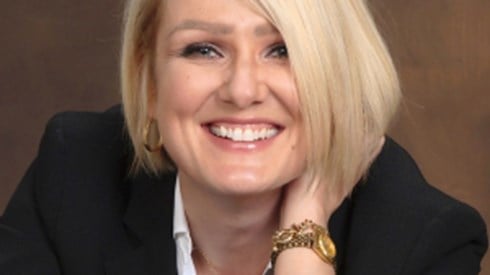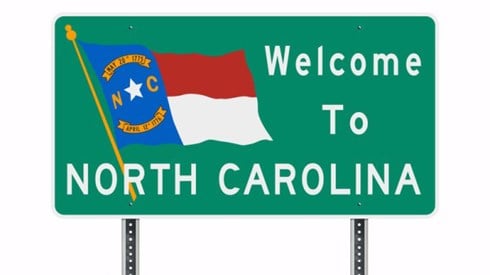Leane Rafalko Offers an Insider's Perspective on North Carolina Captives

August 19, 2019

Leane A. Rafalko, chief captive analyst for the North Carolina Department of Insurance (NCDOI), Captive Insurance Companies Division, is directly involved in the licensing and regulating of North Carolina captives. Ms. Rafalko, who joined the department 18 years ago, also is involved in the marketing and promoting of North Carolina as a captive domicile.
Below, she discusses a wide range of issues, including the growth of North Carolina as a captive domicile, changes state lawmakers have made to North Carolina's captive statute, and the future of captive growth.
In recent years, North Carolina has been one of the fastest growing captive domiciles. At the end of 2018, 244 captives were licensed in the state. That is up nearly 5-fold from just 52 in 2014. What are some of the reasons North Carolina has grown so significantly as a captive domicile?
North Carolina has grown to be a significant captive insurance domicile for many reasons. We have flexible captive insurance laws allowing those who wish to form captive insurers in North Carolina the ease of creating structures according to their unique risk profiles as well as allowing seamless redomestications of captive insurers. Our legislators, along with Commissioner Mike Causey, Chief Deputy Commissioner Dr. Michelle Osborne, the NCDOI senior staff, and the North Carolina Captive Insurance Association, have been supportive of the North Carolina captive program since its inception and continue to strive to make it more successful.
The Captive Insurance Companies Division (CICD) of the North Carolina Department of Insurance began with our Senior Deputy Commissioner Debbie Walker, an actuary, one captive insurance analyst, and a captive administrator. Our division has now grown to include another actuary and 10 captive insurance analysts. CICD prides itself in providing excellent customer service, whereas we review and approve captive insurance license applications and protected cell business plans within 2 to 4 weeks of receiving the complete application.
The same applies for business plan changes. We review and approve these requests within 1 week of submission upon receipt of all required information. Captive managers are assigned a dedicated captive analyst whom they can contact and receive timely responses to their questions and requests.
Lastly, there is a low cost of operating a captive insurance company in North Carolina. There are no NCDOI fees associated with applications, annual filings, and business plan changes. The only fee to form a captive insurance company in North Carolina is the fee for filing the articles of incorporation with the secretary of state's office.
In some domiciles, lawmakers have made few, if any, changes to captive statutes. That has not been the case in North Carolina, where many legislative changes have been made. What have been some of the more significant changes lawmakers have passed in recent years?
North Carolina's Captive Insurance Act is a living document and as the captive program has grown since 2013, we have seen areas in the law that required amending.
Some of the significant additions to our law have been the following.
- We now permit an entity formed in another jurisdiction to obtain a license as a captive insurer in North Carolina.
- We now allow the minimum capital and surplus of a protected cell captive insurance company and a special purpose captive insurance company to be an amount less than $250,000 if appropriate for the captive insurer's business plan.
- The commissioner is now permitted to issue provisional insurance licenses.
- A captive insurance company can be exempt from holding at least one annual board meeting in North Carolina if the captive insurance company utilizes the services of at least two North Carolina service providers.
- An addition was made to grant 30-day extensions to the annual report due date if the request was made within 10 days of the deadline.
- Captive insurers can be declared inactive if the company has ceased transacting business and there are no remaining insurance liabilities.
- The notification requirement for reporting within 30 days after any change in the executive officers or director has been clarified to include the provision that the commissioner must approve those management changes.
One legislative change that was not passed was one that would have temporarily exempted captives that redomesticated to North Carolina from state premium taxes. That happened earlier this year when state lawmakers stripped the premium tax exemption from a broader bill. Why did legislators take that action, and what is the likelihood that lawmakers will reconsider the premium tax exemption in future legislative sessions?
It was determined that due to other pressing insurance legislative matters, the premium tax exemption redomestication legislative proposal would be considered at another time. By year's end, the NCDOI is considering proposed legislation for 2020 to include that amendment.
Moving away from legislation, how successful has North Carolina been in attracting captives from other domiciles? What are some reasons parents have given for deciding to move their captives to North Carolina?
The same reasons that we have grown to become a top captive insurer domicile are many of the same reasons the state attracts captive insurers from other domiciles. I believe our reputation as fair and prudent regulators that provide great customer service sets us apart from other domiciles.
Also, the NCDOI does not charge any fees for reviewing applications. As a result, the only cost associated with redomestications is the fee paid for filing the corporate articles with the secretary of state's office. We also have an efficient and simplified application filing and review process for redomesticating captive insurers.
The CICD has a user-friendly online filing system where the application documentation is entered and submitted to the CICD. We accept information previously submitted to the current regulator if that information is up to date. We also have the ability to issue a provisional license, allowing the insurer time to address administrative requirements and at the same time commence operations as a North Carolina captive insurance company.
The CICD is not required to schedule mandatory examinations, but instead, examinations are performed as necessary on a "target" basis. This allows for NCDOI's resources to focus on the important issues and provide a cost savings to well-run, financially sound captive insurers.
Will redomestications continue?
We invite redomestications to North Carolina; however, captive owners must make the decision to move their captive insurer. North Carolina has approved redomestications from both onshore and offshore, and I believe this will continue. It is a buyer's market, as there are more states now promoting their captive insurance laws and programs allowing captive owners the ability to move their captive insurer to a domicile that best fits their needs.
Also, with the anticipation of more states enacting self-procurement taxes, captive owners may believe it is in their best interests to redomicile their captive insurer to the insured's home state.
Many captive domiciles have seen a slowdown in the number of captive formations in the last couple of years. What are some of the reasons for that slowdown, and do you expect the slowdown to continue?
During 2017 and 2018, we did not see the slowdown but experienced growth by licensing 113 new captive insurers while 46 captive insurers surrendered their captive insurance licenses. This is the similar situation for our protected cells/series. We approved 157 protected cells/series business plans while 65 have terminated. Since most Fortune 500 companies have captive insurers, growth has come from owners of midsized companies in the recent years.
I believe the recent Tax Court decisions coupled with Internal Revenue Service scrutiny of small captive insurers have been tempering those who may want to form a captive insurance company. However, I expect those who believe a captive insurance company is best suited for their business insurance needs will continue to form them. For those business owners who believe a captive insurance company is a good solution for their business but are hesitant to form one due to the current environment, they should seek information from captive service providers before making their decisions.
Have the risks taken on by North Carolina captives changed in the last few years and, if so, how? Do you expect more changes in the coming years?
The risks assumed by North Carolina captive insurers have changed in last few years as CICD licensed many enterprise risk insurance companies at the start of our tenure. However, we are recently licensing more captive insurers that are insuring and reinsuring more traditional risks such as employee benefit and medical stop loss risks, professional and general liability risks, tenant liability, and workers compensation risks. There will always be a need to insure the risks mentioned; however, I believe as advances in technology continue and the world evolves and adapts to technological and environmental changes, the risks requiring insurance will also change to include these advances.
Nationwide, the number of risk retention groups (RRGs) has fallen by several dozen over the last few years, with about 220 RRGs now operating. Has there been any change in the number of RRGs licensed in North Carolina, and if so, why?
Because North Carolina is a newer domicile, our state has not experienced these changes. In contrast, North Carolina has had measured growth of RRGs domiciled in the state. Currently, there are 10 North Carolina-domiciled RRGs licensed.
What have been some of the biggest surprises in the captive insurance industry?
One of the biggest surprises in the captive insurance industry has been Washington State's efforts to collect self-procurement taxes from captive insurance companies that have insured risk there. Will other states be encouraged to follow in Washington State's footsteps by collecting self-procurement taxes on foreign captive insurance companies that are insuring risks in their states? While I hope not, I also believe many captive owners are currently considering what their tax exposure might be if their home state decides to adopt a self-procurement tax law. North Carolina does not tax captive insurance companies formed in other states that insure North Carolina risks.
Where do you expect future captive growth to come from?
The need to insure property, product liability, workers compensation, and other property and casualty risks will continue, but I believe as our reliance on technology as a society grows, businesses will incorporate these advances and new risks will emerge—but coverage may be expensive. As in the past, business owners will find alternative ways to finance these risks, such as forming captive insurance companies to keep costs down.
Also, as the price of health insurance and prescription drugs increases, I imagine captive insurance companies will be formed by business owners who provide employee benefits in lieu of financing all of the health insurance costs through a traditional insurance company. I predict captive insurance growth in businesses that have already formed a captive insurance company by adding coverages such as medical stop loss and cyber security to help with pricing volatility and diversification.
What have been some of your more unusual experiences as a captive regulator?
Prior to working with CICD, I was an examination manager with the traditional insurance company side of the NCDOI where we highly regulated insurance companies and worked together with other state regulators. Now that I am a captive insurance regulator, my responsibilities have changed to include regulating captive insurers by their unique risk profile and not by National Association of Insurance Commissioners-promulgated rules and procedures. I also am responsible for marketing and promoting our captive insurance program. My role has somewhat changed in that while I once worked in conjunction with other states, we now seem to challenge each other to bring captive insurers to our individual states on the merits of our captive insurance laws and programs.
What do you enjoy most about being a captive regulator?
I enjoy just about everything about being a captive insurance regulator. I like learning about the purposes of businesses forming captive insurance companies, the risks being insured, and the structure and form of the captive insurance companies. I enjoy reading business plans and feasibility studies and learning about the actuarial methods employed to determine premium and projected losses. I look forward to captive insurance conferences, marketing our program, meeting new people, and talking with them.
But the highlight of this job is the people. I have skilled colleagues who are certified insurance professionals with diverse backgrounds; I work with our experienced captive managers and knowledgeable service providers on a daily basis that help make our program a success; and I enjoy meeting our potential captive insurance company owners to discuss the possibility of forming their own captive insurance company. All in all, I can honestly say I have my dream job.
How would you describe the NCDOI's relationship with the industry?
I believe we have a terrific partnership with the industry. The captive managers and service providers know they can contact us with questions and we will promptly respond. It is important to the NCDOI to work closely with business owners and their providers to determine if a unique proposal will ultimately be allowable under our captive law. As CICD strives to provide excellent customer service, we believe our working relationship with our captive managers and service providers will form a lasting partnership.
(Article photo of Ms. Rafalko is provided courtesy of the North Carolina Department of Insurance, Captive Insurance Companies Division.)
August 19, 2019



